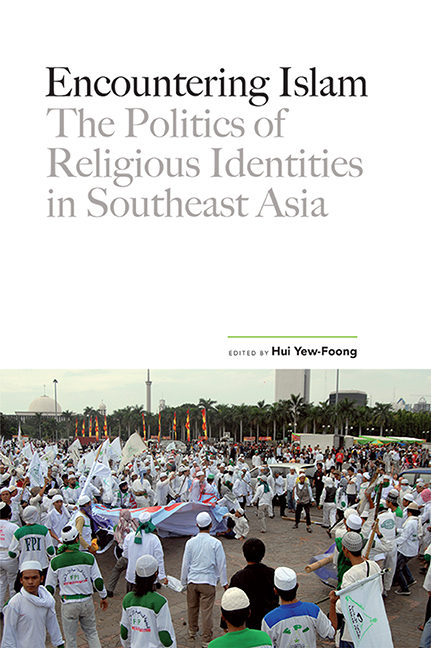Book contents
- Frontmatter
- Contents
- Acknowledgements
- Contributors
- Part I Introduction
- Part II Islam across Borders
- 2 Religious Elites and the State in Indonesia and Elsewhere: Why Takeovers are so Difficult and Usually Don't Work
- 3 “I was the Guest of Allah”: Modern Hajj Memoirs from Southeast Asia
- 4 The Aurad Muhammadiah Congregation: Modern Transnational Sufism in Southeast Asia
- Part III Malaysia
- Part IV Indonesia
- Part V Muslim Minorities
- Index
3 - “I was the Guest of Allah”: Modern Hajj Memoirs from Southeast Asia
from Part II - Islam across Borders
Published online by Cambridge University Press: 21 October 2015
- Frontmatter
- Contents
- Acknowledgements
- Contributors
- Part I Introduction
- Part II Islam across Borders
- 2 Religious Elites and the State in Indonesia and Elsewhere: Why Takeovers are so Difficult and Usually Don't Work
- 3 “I was the Guest of Allah”: Modern Hajj Memoirs from Southeast Asia
- 4 The Aurad Muhammadiah Congregation: Modern Transnational Sufism in Southeast Asia
- Part III Malaysia
- Part IV Indonesia
- Part V Muslim Minorities
- Index
Summary
One of the more important ways that accounts of the hajj have been transmitted is through memoirs — the conscious act of people setting down their memories to pen and paper, in order to have these memories preserved as a record of their journeys. Few experiences, in fact, have been deemed more worthy of a written account than those activities involving a spiritual quest of one sort or another, a state of affairs commented upon in some detail by scholars of this genre of writing (Hutch 1997). Yet the memoir as artefact, as nearly everyone would agree, is not a dyed-in-the-wool record of actual events, preserved in complete veracity with “what happened”. It is, rather, a construct, with “truth passing toward art” in the words of one prominent critic (Barrington 1997). Distortion, whether intended or unconscious, is always a part of this morphogenesis, and is in fact part and parcel of translating one's lived experiences into a format ready for the reading of other people (Conway 1998). As such, memoirs can and should be dissected, to see what their writing can tell us about how such stories are generated, and what their very inscription means as an act of intent (Hart 1970, pp. 485–511). Some scholars have noted that memoirs have their own rhythms and patterns as a genre, often following certain themes in their quest to lay out and explain lived experience (Fletcher 1966). These critical dimensions of gauging the worth of memoirs are useful and instructive in thinking through the value of such accounts, and perhaps especially so in the telling of a journey as large (and as diverse) as the hajj, which allows millions of people to undertake a voyage in many of the same ways.
In the pages that follow I set out some of the ways in which hajj memoirs can be read. These memoirs nearly all come from the past fifty or so years (that is to say, the postcolonial period in Southeast Asia), when pilgrims were making hajj from independent nation-states in the region. Nearly all of these narratives have been written in Indonesian or Malay.
- Type
- Chapter
- Information
- Encountering IslamThe Politics of Religious Identities in Southeast Asia, pp. 47 - 65Publisher: ISEAS–Yusof Ishak InstitutePrint publication year: 2012



